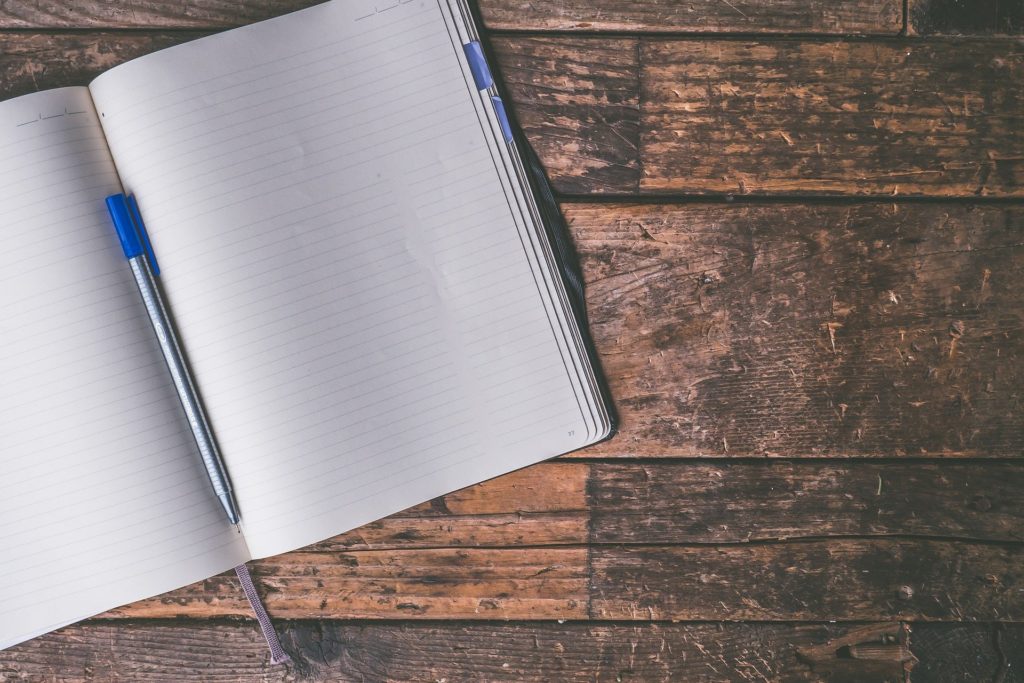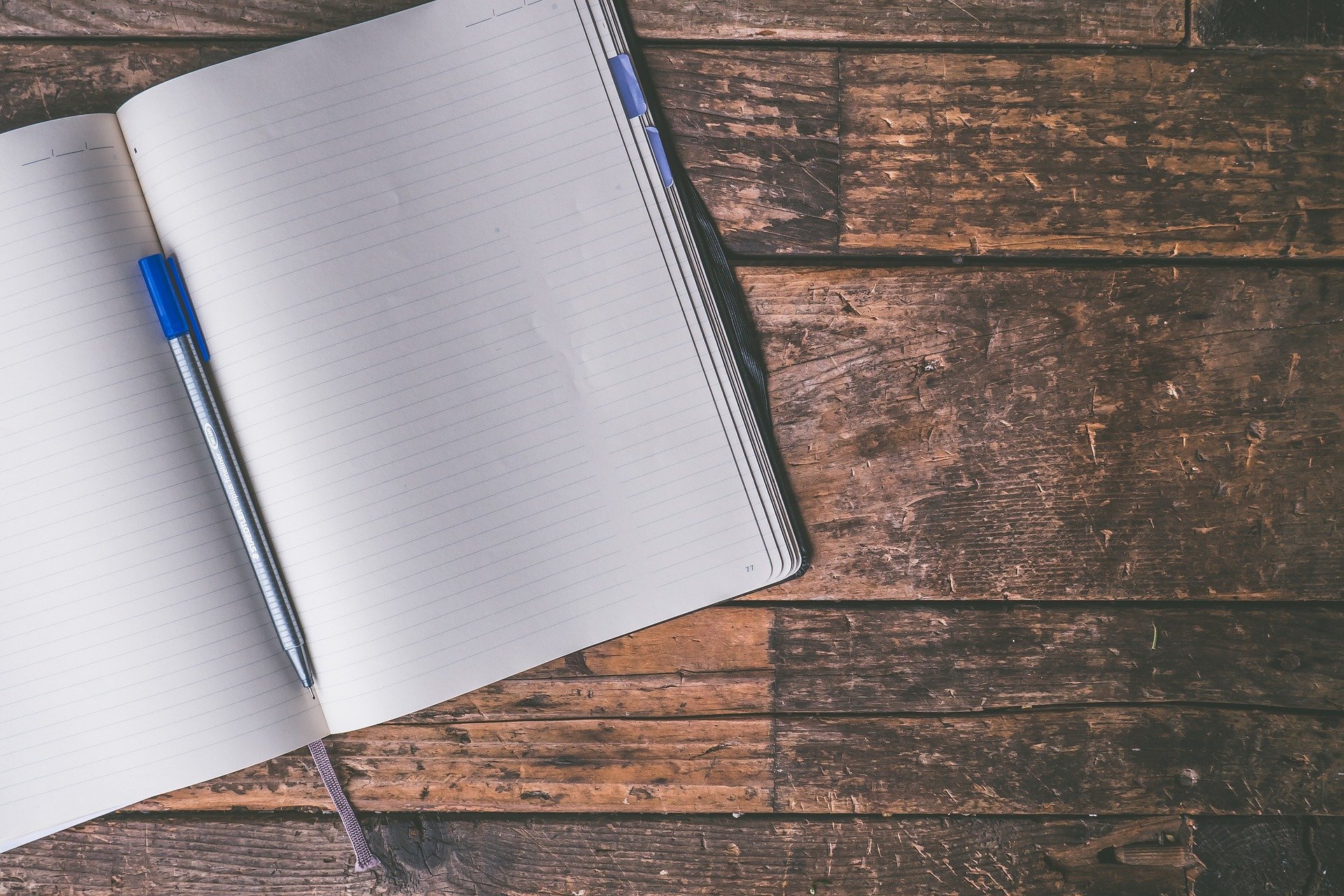
Table of Contents
Why It’s Important for Entrepreneurs to Carry A Pocket Notebook
We’ve out-digitized ourselves as entrepreneurs. Everything you need to operate your business can likely be done on your phone. But just because you can keep everything in your phone, doesn’t mean you should. If you want to have the best creative edge for your business you need an analog component.
We’re talking paper and ink.
I’m a big proponent of analog notes.
There’s something about analog, mindful note-taking, where you must curate your thoughts to get the pure idea on paper, as opposed to digital notes, where people tend to over-document everything. Typing is faster. We’re good at typing with our thumbs. When we type our notes we become stenographers.
Instead of listening and noting what we’ve learned from the content. When we take digital notes we tend to type as much as what was said, thought, or written in a book.
But if you want to put yourself in a position where you’re in the most-creative place, it’s time for a pocket notebook.
Pocket notebooks are inexpensive. You can buy them in bulk on Amazon, with different types of papers and covers. Where many people get tripped-up with pocket notebooks is that they consider these little rectangles sacred. The notebooks don’t get used, because the user didn’t feel the notes were important enough to spoil the notebook.
I used to feel the same way myself. I have buckets of empty notebooks.
However, once I started to consider my pocket notebooks as disposable, I developed a new appreciation for analog notes. Now I use my pocket notebooks every day. All my ideas go in the pocket notebook first. Later, these notes get distributed and curated to other places.
I now go through a new pocket notebook every three weeks.
If Your Not Growing You’re Shrinking
As entrepreneurs we can’t stop improving our current methods, ideas, and products. Even the most-viral idea will eventually be copied and ripped-of by a hungry newcomer. The more success your business has, the more you’ve got to focus on the next step before your competition does.
How will you make your current product better? How will you outdo the product you’ve already created? How will you stay three steps ahead of the people who want to grab your customers?
The way we grow is to keep creating.
Our best ideas come from the subconscious mind. The conscious brain is a tiny weakling compared to the idea-power behind the subsconscious. We need both. The conscious mind is the ‘action’ mind. But without new creative solutions, our conscious mind won’t have anything to take action on.
Therefore, we’ve got to put ourselves in the best position to create good ideas. This means we’ve got to move.
Our Creative Brains Are Wired for Movement
The worst time to try and think of a new solution, is while you’re sitting at your desk. Our brains are wired to be inspired as we move. This is why we get all these ‘a-ha’ moments in the shower, or while we’re walking the dog.
You don’t have to tell your subconscious to work on a problem for you.
The issues that fill your mind are the problems where your subconscious focuses its attention. Your subconscious works like a computer network, humming-along in the background as you work your way through the day.
The new ideas and solutions will come.
Small clues from your environment will spark an idea. When the idea is ready your subconscious will deliver it. The question is, will you be ready to capture the idea once you get it?
Sure, you can type notes in your phone, but sometimes an idea is more than a note. We need to draw little pictures, venn diagrams, and crude sketches. The brain treats digital content differently than paper notes we can feel.
We Need a Collection System
The pocket notebook is small enough to carry with you at all times. I keep mine in my pocket, even if I’m wearing pajamas. When I go to sleep I keep the pocket notebook on my nightstand. It’s with me in the car—everywhere.
Sometimes we’re given our best ideas once.
If you don’t have a capture system it’s likely you’ll lose the idea. You can try to count on your memory to jot down an idea later, but most of us will forget it. If you want to grow your business to the next level you can’t afford to lose a great idea.
When you’re given a great idea it’s important to capture it and never judge the idea at the moment of capture.
Curation will come later.
Not every idea will be a good idea. Not every note will be worth saving. For most ideas, we’ve got to combine more than one concept together to create a revolutionary solution to our business.
We Need a Curation System
True art is made in the editing. Like any novel, product design, sculpture, software, or consulting, the value of any great idea comes after we’ve captured it. The curation, the time we take to review our notes days later, this the time we create our best work.
Maybe 90% of the ideas you capture won’t be worth pursuing.
But we don’t collect our ideas for those 90%. We create a foolproof notebook system for the 10%, the game-changing ideas that keep us in the game. We capture these daily ideas for those golden nuggets we’d never get from sitting in a meeting, or staring at a monitor.
Take time to move every day.
Whether you go for a walk, wash your hands, climb stairs, or run with your dog, we’ve got to move to keep the good ideas coming. Remember, you don’t have to try to think of innovative solutions. Your subconscious is already working on them.
All you have to do is be there to capture the ideas when you’re given them.
As you re-read your notes the next day, or the end of the week, curate these ideas and collect them to cloud storage somewhere. You don’t have to keep your analog notes on paper forever, but the initial analog collection is the best way to capture creative moments.
We Need an Implementation System
OK, you’ve captured and curated the best ideas down to those 10% that will grow your company and move it forward. Great ideas aren’t worth anything without an implementation system.
For implementation, we return to our pocket notebook.
I like to open my notebook flat and use two pages per day. The left page is the implementation side. The right page is the idea capture side. On the left side I write 2-3 non-negotiable tasks the must be done before the end of the day. Beneath the non-negotiables is a running list of daily tasks. Some of these can get pushed if we don’t finish them.
The non-negotiables are the tasks that move your top ideas forward.
As an entrepreneur you have multiple fires to put out during the day, but you won’t grow if you don’t implement those important projects you capture. As you work your way through your to-dos, you also create a hard-copy of the daily tasks you used to move your business forward.
Your pocket notebook serves as a diary of past events.
As you move through the year, you can flip-back to previous notebooks and re-calibrate your work process moving-forward.
- How many tasks get pushed multiple days?
- Are your daily non-negotiables big enough?
- Are you getting your business closer or further from the growth you targeted?
When you keep analog notes you’ve got a hard-copy of everything you’ve done and plan to do in the future. The pocket notebook is a small piece of your entrepreneurial process, but you’ve documented the way you work (and how much you’re capable of doing) throughout the course of the year.
I leave the first first couple pages of each notebook blank.
As I create a new project in the weeks ahead, I’ll write a broad project checklist in the front pages of the notebook. The captured ideas become actionable tasks. The tasks are further broken-down into daily non-negotiables.
Through this constant, daily checks and balances system, I have a permanent stream of new ideas coming in while I’m working on the actionable steps every day.
It’s Time to Unplug a Little
It’s not as if we’ll be less-digital or spend less time on screens in the future. The physical office is disappearing. Location-independence is growing. The time we spend plugged-in the less time we spend in the physical world, creating new ideas with our hands.
The pocket notebook is a simple solution.
We can’t put the digital world back in the bottle. Nor would we want to. What we can do is take some time every day to move and unplug. Our brain hasn’t evolved as fast as technology. We still need this daily motion to uncover our best future ideas.
The more you put yourself in an optimal creative situation, the more of those 10% gems you’ll uncover. I challenge you to start using a pocket notebook. Try it for a month. Remember the pages aren’t sacred. It’s the ideas that matter, not the blank paper.
August Birch is an author, email expert, and entrepreneur from Michigan, USA. As a self-appointed guardian of writers and creators, August teaches indies how to make more work that sells and sell more work once it’s made. When he’s not writing or teaching, August carries a pocket knife and shaves his head with a safety razor.
